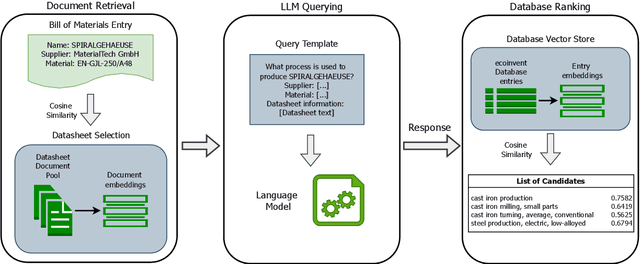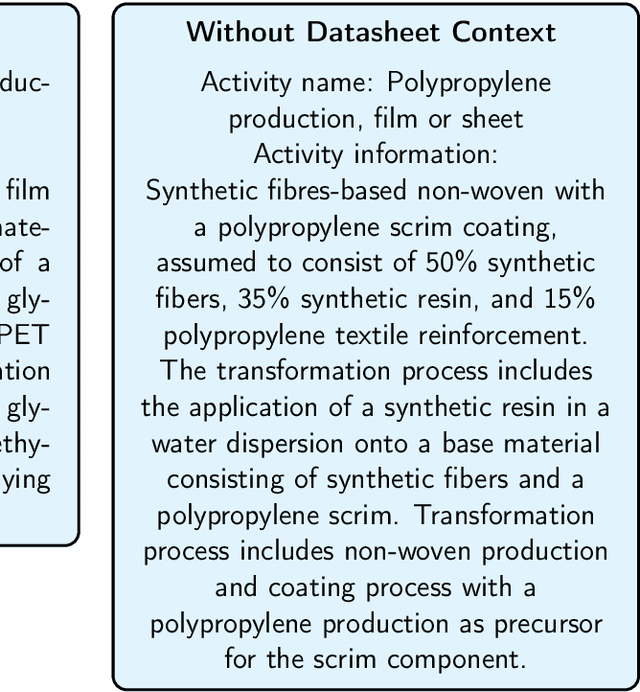Steffen Castle
Entity Linking using LLMs for Automated Product Carbon Footprint Estimation
Feb 11, 2025



Abstract:Growing concerns about climate change and sustainability are driving manufacturers to take significant steps toward reducing their carbon footprints. For these manufacturers, a first step towards this goal is to identify the environmental impact of the individual components of their products. We propose a system leveraging large language models (LLMs) to automatically map components from manufacturer Bills of Materials (BOMs) to Life Cycle Assessment (LCA) database entries by using LLMs to expand on available component information. Our approach reduces the need for manual data processing, paving the way for more accessible sustainability practices.
Pattern-Guided Integrated Gradients
Sep 01, 2020


Abstract:Integrated Gradients (IG) and PatternAttribution (PA) are two established explainability methods for neural networks. Both methods are theoretically well-founded. However, they were designed to overcome different challenges. In this work, we combine the two methods into a new method, Pattern-Guided Integrated Gradients (PGIG). PGIG inherits important properties from both parent methods and passes stress tests that the originals fail. In addition, we benchmark PGIG against nine alternative explainability approaches (including its parent methods) in a large-scale image degradation experiment and find that it outperforms all of them.
 Add to Chrome
Add to Chrome Add to Firefox
Add to Firefox Add to Edge
Add to Edge